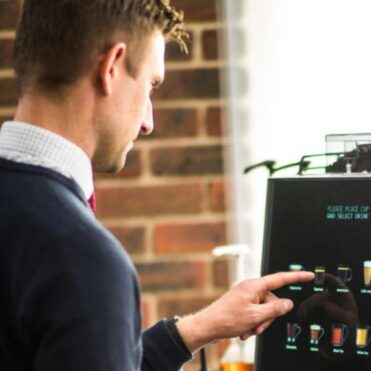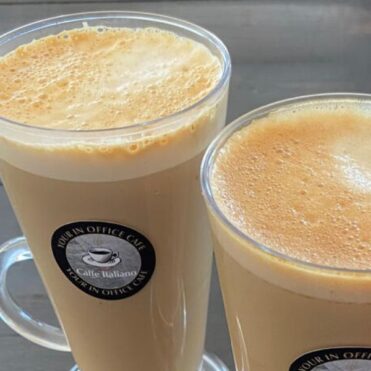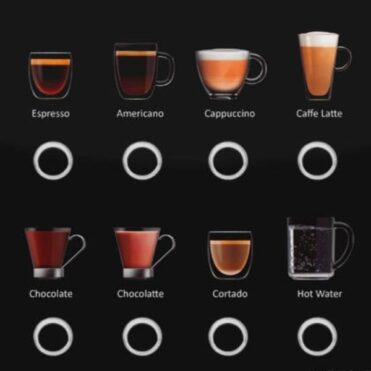The History of Coffee Machines
Brewing Progress: A Journey Through the History of Hot Beverage Equipment
Coffee, the beloved elixir of wakefulness, has a rich history that spans centuries and continents. It has evolved from simple beans into an art form, and at the heart of this evolution lies the humble coffee machine. This intricate device has undergone remarkable transformations since its inception, from the rudimentary contraptions of the past to the sophisticated marvels we use today. Join us on a journey through time as we explore the fascinating history of coffee machines.
Before the Machine: Coffee Preparation in Ancient Times
Long before the invention of mechanical brewing devices, coffee was already shaping cultures and rituals. Originating in Ethiopia around the 9th century, coffee beans were initially consumed as a stimulant by chewing or brewing them in simple forms. By the 15th century, the practice of boiling coffee grounds in water, similar to Turkish coffee, had become widespread in the Ottoman Empire.
The cezve, a small long-handled pot, was used to brew finely ground coffee over a fire. This method created a thick, rich brew still favoured today. Though lacking modern mechanics, these brewing methods laid the groundwork for coffee’s ceremonial and social significance. These early traditions influenced future innovations by establishing coffee as a daily necessity rather than a luxury.
The Early Pioneers
The tale of coffee machines begins in the 17th century. In 1650, an Armenian named Pascal invented the first known coffee-making machine. This device, rather unconventional by today’s standards, resembled a small copper pot with a vertical boiler and a spout for serving. It was a primitive version, yet it marked the initial step toward mechanising the coffee-making process.
In 1710, Frenchman Lancelot de Morveau improved upon Pascal’s design, creating a coffee percolator that allowed hot water to circulate through a bottom chamber filled with coffee grounds. While these early inventions showed promise, they were far from the efficient and convenient coffee machines we are familiar with today.
The Rise of Espresso
The 19th century brought significant advancements to coffee brewing technology. Espresso, the heart and soul of modern coffee culture, made its debut. In 1822, Louis Bernard Rabaut patented the first espresso machine. This device utilised steam pressure to force water through finely ground coffee, producing a concentrated and flavourful brew.
However, it was Angelo Moriondo, an Italian inventor, who truly revolutionised espresso-making in 1884. His machine featured a large boiler, multiple groupheads, and a steam wand for frothing milk, a crucial element for crafting cappuccinos and lattes. The espresso machine quickly gained popularity in Italian cafes, setting the stage for the global coffee revolution.
Espresso Goes Global
Espresso machines spread across Europe in the early 20th century. In 1905, Luigi Bezzera patented a version of the espresso machine with a pressure-release valve, allowing for better control over the brewing process. This innovation laid the foundation for what we now recognise as modern espresso machines.
In the 1930s, La Pavoni, an Italian company, introduced the first commercial espresso machine, which further popularised espresso in cafes worldwide. This period also saw the emergence of iconic espresso machine manufacturers like Gaggia and Faema, whose machines incorporated innovations like lever-operated espresso makers and semi-automatic brewing.
By the mid-20th century, espresso culture was spreading rapidly. In the United Kingdom, cafes began embracing espresso as continental tastes influenced local habits. Across the Atlantic, the United States saw a surge in espresso popularity, leading to the rise of coffeehouse chains like Starbucks in the 1970s and 1980s. Regional adaptations such as the Cuban café cubano and Spanish cortado began making their mark as well, showcasing espresso’s global appeal.
The Automatic Revolution
The mid-20th century witnessed a monumental shift in coffee machine technology with the advent of automatic coffee makers. In 1972, American engineer Vincent Marotta and his partner Samuel Glazer introduced the first automatic drip coffee maker, the Mr. Coffee. This device popularised the convenience of drip brewing and forever changed how people brewed coffee at home.
Simultaneously, the commercial coffee industry saw innovations like the semi-automatic espresso machine, which featured automated water delivery, temperature control, and pressure regulation. The push-button espresso was born, making it easier than ever for baristas to craft consistent, high-quality coffee.
Coffee machines during this time also began appearing in workplaces, with vending machines offering instant coffee becoming a staple in UK offices and break rooms. These developments democratised access to coffee, making it a standard part of daily routines.
The Rise of Bean-to-Cup and Specialty Coffee
The late 20th century and early 21st century marked a new era in coffee machines, driven by the growing demand for specialty coffee. Espresso machines became more technologically advanced, offering precise control over brewing variables such as temperature, pressure, and extraction time. Companies like La Marzocco, Synesso, and Slayer led the charge in this realm.
Additionally, the espresso machine’s evolution saw the introduction of super-automatic machines, capable of grinding, dosing, tamping, brewing, and even frothing milk with the push of a button. These machines streamlined the coffee-making process but raised debates about the art and craft of coffee.
Among the most impactful innovations was the rise of bean-to-cup coffee machines. These all-in-one systems became immensely popular in offices and hospitality venues. Offering freshly ground coffee at the press of a button, bean-to-cup machines combine the quality of specialty coffee with the ease of automation. They helped bridge the gap between artisan brewing and everyday convenience.
Sustainable Sipping: Eco-Friendly Coffee Machines
As awareness of environmental issues grew, coffee machine manufacturers began focusing on sustainability. Energy-efficient coffee machines, recyclable components, and features like auto-off functions became standard. The shift from single-use pods to refillable systems also helped reduce waste.
Modern machines often include eco modes, smart timers, and even compatibility with renewable energy sources. Offices and cafes are now factoring sustainability into purchasing decisions, with some choosing machines that offer carbon footprint data or lifecycle assessments.
These changes reflect a broader consumer demand for environmentally responsible products, a trend that continues to influence coffee machine design and innovation.
The Digital Age
As we step into the digital age, coffee machines have merged with smart technology. Coffee lovers can now customise their brews using smartphone apps, adjusting everything from water temperature to grind size remotely. This level of control empowers coffee enthusiasts to experiment with new flavours and extraction profiles.
Wi-Fi and Bluetooth-enabled machines offer remote brewing, scheduling, and diagnostics. Commercial machines now come equipped with AI-driven maintenance alerts, usage analytics, and cloud-based controls, making it easier for facilities managers to monitor performance and minimise downtime.
Voice assistants like Alexa and Google Home are also being integrated, allowing users to brew their morning coffee with a simple voice command. As the Internet of Things (IoT) continues to grow, coffee machines are becoming part of connected ecosystems in homes and businesses alike.
What the Future Holds
Looking ahead, coffee machine innovation shows no signs of slowing. Robotics is poised to play a significant role, with robotic baristas already making appearances in airports and tech expos. These systems use articulated arms and smart programming to brew espresso, steam milk, and serve drinks with minimal human intervention.
3D printing is also being explored for rapid prototyping and custom parts, potentially reducing manufacturing waste. Meanwhile, blockchain technology is being tested to ensure transparent coffee sourcing, allowing machines to display bean origin and trade credentials in real time.
We may also see machines equipped with biosensors that personalise coffee based on user health metrics, or machines integrated with virtual assistants to recommend drinks based on weather, time of day, or personal preferences.
A Closing Reflection
The history of coffee machines is a testament to humanity’s relentless pursuit of a perfect cup of coffee. From the humble beginnings of Pascal’s copper pot to today’s digitally controlled espresso machines, innovation has shaped the way we brew and enjoy coffee.
As we sip our morning latte or indulge in a perfectly pulled shot of espresso, we owe a debt of gratitude to the inventors and engineers who have tirelessly improved coffee machines throughout history. These machines have not only changed how we consume coffee, but also how we interact, socialise, and work.
Coffee, in all its complexity and variety, has brought people together for centuries. The coffee machine has been there every step of the way, brewing progress one cup at a time.









